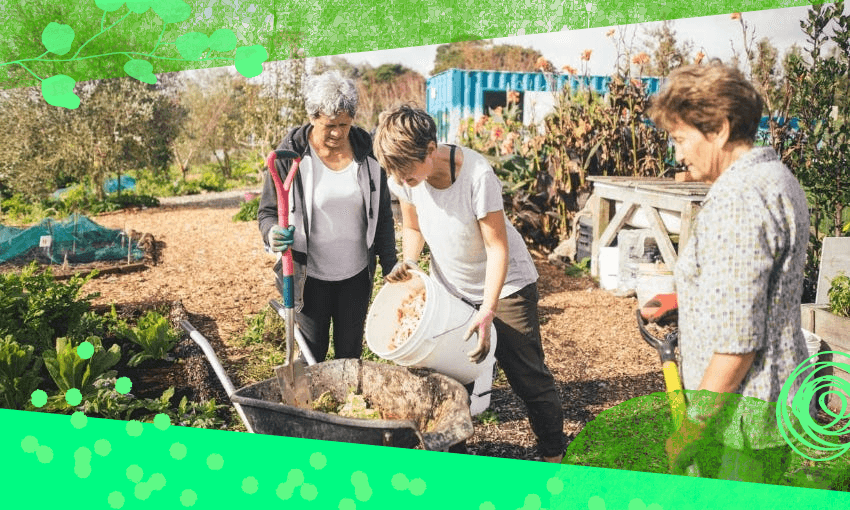A compost evangelist tells Ellen Rykers what makes composting your food scraps so satisfying.
This is an excerpt from our weekly environmental newsletter Future Proof. Sign up here.
Adam Ben-Dror had never taken much notice of composting. But once he got involved in growing veggie gardens, the interest in transforming food scraps into garden gold came naturally.
The first time he gave it a go was surprisingly profound: “It was the first time I saw a loop being closed,” he says. “The first time that I saw in a really clear way that this waste [which he came to learn is not in fact waste at all] wasn’t going somewhere else. I was able to transform it.”
Now a tutor at the Compost Collective, Ben-Dror is a keen composter, worm farmer and food grower. And he reckons everyone can – and should – make the magic of composting a part of their daily lives.
“It can be a really low time and energy and brain commitment,” Ben-Dror says. In its simplest form, he explains, you layer up some food scraps (greens) with dried leaves or shredded paper or cardboard (browns), in about a 50/50 ratio. “As long as you’re getting that ratio about right, as long as it doesn’t get too wet or too dry, then you can’t go too far wrong.”
“Why not just put your food scraps in the rubbish”, you may be wondering. Food scraps sent to landfill release planet-heating methane gas, which is 28 times more potent than carbon dioxide. Plus, nutrients are lost. Essentially, food scraps are valuable, and chucking them away is a wasted opportunity to give our soils a health boost.
Auckland’s new dedicated kerbside food scrap collection – which takes waste to a digestion facility near Rotorua – is better than sending food waste to landfill, Ben-Dror says. But given the choice, Ben-Dror would pick composting over the kerbside bin. “I get to benefit from the compost, my local community benefits, and I can grow food.”
Even if you personally aren’t a grower, your food scraps can fuel the compost of other gardeners in your community through the ShareWaste app. They can fuel social connections too: “The composting and growing community in Auckland is such a rich place,” says Ben-Dror. “Community gardens are absolute treasures. They’re just like these little oases of calm and community and food.”
Go further down the composting wormhole and you’ll find a sense of deep satisfaction, says Ben-Dror – the kind that comes from making something with your own two hands (and your apple cores and banana peels). “You can watch it changing and transforming… in the same way that a plant is alive, a compost heap is alive.”
Ultimately, the humble compost heap is a gateway to connecting with nature.
“We’re very disconnected from this fundamental process that happens on the planet. And it’s kind of unnatural to be disconnected. So it’s like coming home, engaging with this process that just takes place on the forest floor. That’s what happens when organic matter falls off of trees. Starts decomposing. The practice of composting is a way for us to start to re-enter the circles of life, or as Buddhist eco-philosopher and author Joanna Macy would say, for us to “Come Back to Life”.”
There’s a composting solution to suit your lifestyle and commitment level – whether you’re on a lifestyle block in the wop-wops or cosied up in a city apartment. If you get stuck, there are also plenty of people who are keen to help, like Ben-Dror and the folks at the Compost Collective.
